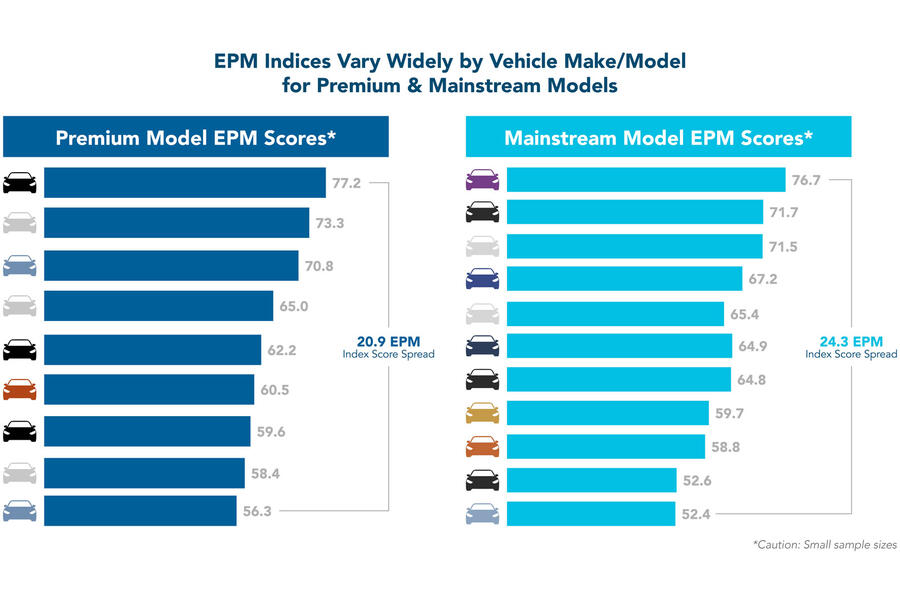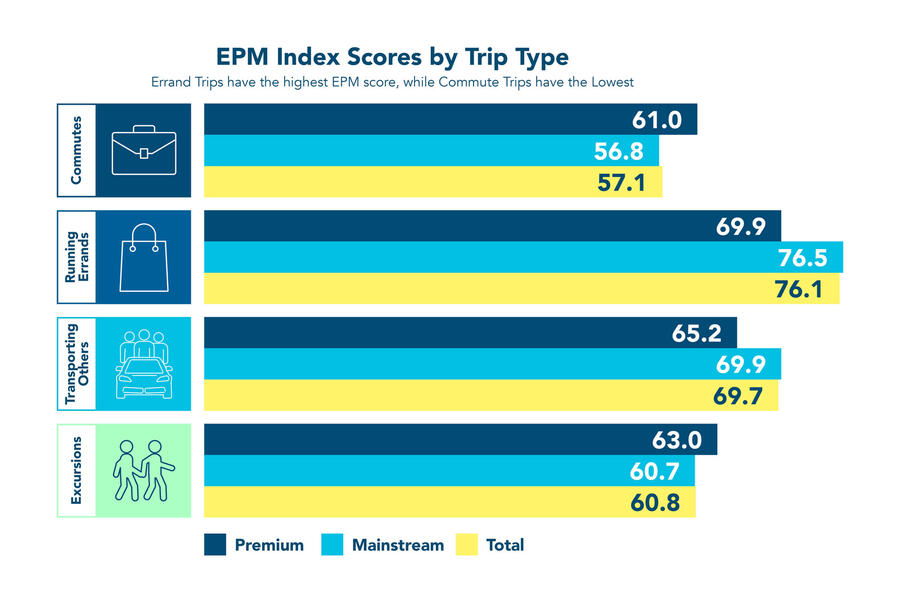As the RPM gauge, that tried and trusted measure of a car's performance, is rendered obsolete by the electric motor, so a new one could be about to replace it: the EPM.
Standing for experiences per mile, it's claimed to be a new method of evaluating how effective a vehicle is at developing a positive in-car experience at a time when the traditional measures that consumers have relied on, including horsepower, handling and even brand name, are forecast to become less differentiated and significant.
It's the brainchild of the EPM Advisory Council, an association of automotive manufacturers and suppliers – including Ford, Harman International, Hyundai, LG Electronics, Nissan and Stellantis – formed to consider how companies can respond to the changing expectations and experiences of motorists brought about by electrification, autonomy and other technological advances.
As part of the initiative, the council has created the experience-per-mile metric – a score from 0-100 that rates how well a driver's "experience goals", such as being connected, productive or entertained, are achieved on different types of journey, including commuting, running errands, transporting others and days out.
The council says that to help consumers choose between different models, the metric will be displayed on each car, showing, for example, that it has a high EPM for road trips or a high EPM for commuting.

To calculate its first set of EPM scores, the council commissioned Ipsos, a market research company, to survey owners of a selection of mainstream and premium mid-size SUVs. Each owner awarded their experience goal a value depending on how well they thought it had been achieved on each journey type. This value was then multiplied by the importance – or weighting – they attached to that experience relative to the type of journey undertaken. From these results, EPM ratings were calculated for each model.






Join the debate
Add your comment
This is not only a stupid idea, it's also confusing! Rather than having a single score, there appears to be 4, based on the type of journey. It's almost insulting to the consumer to suggest that rather than looking at car and being able to work out where it would be good at commuting, or fitting a large item in the back, they would need to refer to a 'score'.
Furthermore, these scores are taken from research, so can only be applied to cars on the market with existing customers. How will new-to-market cars be graded? If it's by the manufacturer then its completely meaningless, being a subjective value in the first place, asking the person who is selling the product to score it gives them no incentive to be honest! (to the extent of giving a score they think it would have, because, they can't measure it anyway).
EPM is an imaginative measure of satisfaction, unless EV reintroduces the a clutch and 6-speed gearbox (preferably non-synchromesh) for the 0.001% of buyers in 2030.
EPM is an imaginative measure of satisfaction, unless EV reintroduces a clutch and 6-speed gearbox (preferably non-synchromesh) for the 0.001% of buyers in 2030.
I was quite excited when I saw the headline. I anticipated it would be something to do with how connected or involved the driver is with the car - which might somehow equate to the old experience of revving the nuts off it. The actual proposal is meaningless cobblers which has absolutely no similarity to RPM whatsoever. I'm a big advocate of EVs and new technology but this made me die a bit inside.